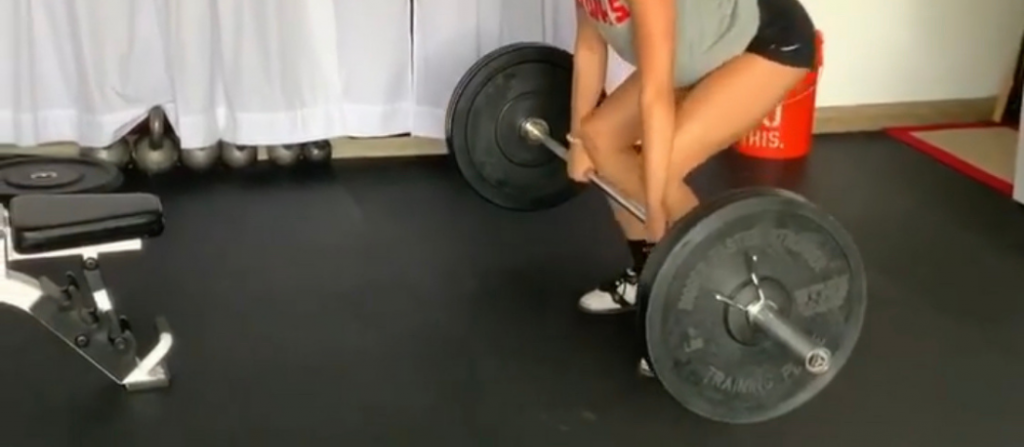How many times have you heard people say, “If being strong is the key to being fast, then powerlifters would be the fastest athletes in the world”?
We all know this is an oversimplification of a more complicated topic.
Speed does require strength. But Why?
If you are a sprinter that can apply more force into the ground and stabilize the force throughout the joints of the body, you have the potential to move faster off the ground.
If you can move faster OFF the ground, you can move faster OVER the ground.
There is way more to this story than just being strong.
The other variables that make an athlete fast aside from strength are:
- Sprinting Mechanics – the postures and positions need to be advantageous to create more speed.
- Coordination – not only do we want the coordination of the arms and legs in opposition to be correct, but we also need the CNS and muscular system’s physiology to be firing on all cylinders. The cleaner the coordination and timing of muscle firing are, the faster they can fire.
- Relaxed Speed – trying too hard isn’t a good thing to reach high speeds. The athlete starts to tighten up and not allowing the natural summation of movement to occur.
- Recovered – I know this sounds like a fluffy response, but it might be as important as all the others combined if the athlete has all the other variables in place but is overly fatigued- game over! High levels of speed are not happening!
I remember in my earlier days training a soccer athlete who was about 5’6 and 120 pounds. He had very skinny arms and legs and told me he had never weight trained – he only played, practiced, and trained for soccer.
One of the drills I love is a Tier 1 Reactive Tennis Ball Drop. The athlete must start in a chosen stance and take off when the ball is dropped, and catch it before it bounces twice. To this day, he is still the quickest athlete I have ever had to do this drill. It was almost as if I couldn’t get back far enough to be out of his range!
I mention this story because this young athlete would rank at the charts’ very bottom in weight-room strength. But his ability to apply quick, well-coordinated, mechanically sound force into the ground was amazing!
Without testing his muscle firing sequencing and elastic qualities, I would bet he would rank at the top of the chart.
Genetics? Probably! He was gifted with great genes for speed. He didn’t need more strength to be faster for his sport, relatively speaking for his age.
On the other hand, strength training would have helped support his abilities and potentially reduced injury potential.
My concern would have been if he did too much strength, would he have lost the advantages his genetic qualities gave him to be fast? Not, sure but I have an inkling it would have.
In summary, does strength help sprinting? We can most likely infer that it can. We say this because there have been way too many athletes getting faster after performing a properly constructed strength program.
We also have to admit that too much strength training might have an adverse effect on speed. If the strength training increased the athletes’ weight, they gained too much size but didn’t off-set with strength (relative strength).
Or if the athlete did so much heavy lifting and the co-contraction properties screwed with the summation of muscle firing sequencing. Fast athletes need opposing inhibitory action of the muscles to move limbs at high rates of speed.
Anyway, I think you see my point. The stronger an athlete is, the more accurately and coordinated they can produce force into the ground should result in more speed. The question becomes how much stronger, what kind of strength, and at what cost?
To be continued in the future Speed Insiders Bog…
The truth is the Speed Insider Toolbox is one of the most active and information-filled communities out there. By visiting www.Speedtoolbox.com, you can gain instant access to start your journey to becoming more informed about changing the performance world for the better.

